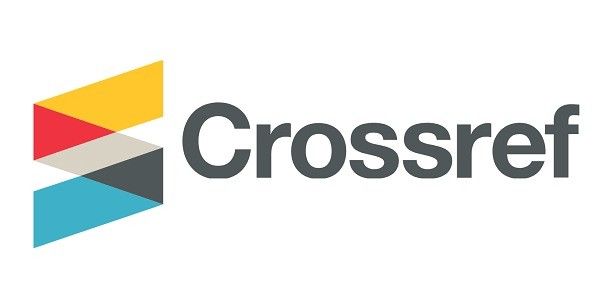Abstract
This research explores the incorporation of parametric models into the algorithmic design process, specifically focusing on furniture and interior design. It presents a case of an experimental equation centred around a waffle honeycomb structure. The first part of the article reviews three decades of literature on parametric design, which comprises its background, history, theory, and essential concepts and applications. The second part investigates the parametric design process to uncover its potential for interior design applications. The combination of parametric equations with algorithms through the utilisation of multiple steps, such as conditional loops, efficiently designs intricate systems. An intricate system in parametric design comprises various input parameters, rules, mathematical algorithms, and conditional relationships that interact to generate design solutions. This approach is potentially applied in various design scenarios to respond to specific criteria and constraints, facilitating flexibility, adjustments to potential outcomes, and achieving a high level of detail in the final result. This research primarily concentrates on the identification of parametric design methodologies and the utilisation of parametric equations in crafting furniture and interior designs featuring waffle structures. Furthermore, it introduces a versatile parametric design approach that can be applied to various design tasks, highlights the evolutionary trajectory of parametric design, and offers insights into its potential impact on future design practices. The exploration of the parametric method enhances the understanding of complex design approaches in a more accessible and innovative manner with practical applicability.
Publication Date
1-29-2024
References
Assasi, R. (2019). Parametric design, a historical and theoretical overview. In M. Asefi & M. Gorgolewski (Eds.), Proceedings of the International Conference on Emerging Technologies in Architectural Design (ICETAD2019). Department of Architectural Science of Ryerson University.
Blosiu, J. O (1999). Use of synectics as an idea seeding technique to enhance design creativity. IEEE SMC'99 Conference Proceedings, 1001–1006. https://doi.org/10.1109/ICSMC.1999.823365
Bucci, F., & Mulazzani, M. (2002). Luigi Moretti: Works and writings. Princeton Architectural Press.
Burry, M. (2011). Scripting cultures: Architectural design and programming. Wiley.
Coenders, J. L. (2021). Next generation parametric design. Journal of the International Association for Shell and Spatial Structures, 62(2), 153–166.https://doi.org/10.20898/j.iass.2021.018
Cropley, D. H., Kaufman, J. C., & Cropley, A. J. (2011). Measuring creativity for innovation management. Journal of Technology Management & Innovation, 6(3), 13–30. https://doi.org/10.4067/S0718-27242011000300002
Dana, J. (1937). On the drawing of figures of crystals.The American Journal of Science and Arts (1820–1879), 33(1), 30–50.
Davis, D. (2013a). Modelled on software engineering: Flexible parametric models in the practice of architecture (Publication No. 9921864145501341)[Doctoral dissertation, RMIT University]. RMIT Research Repository. https://researchrepository.rmit.edu.au/esploro/outputs/9921864145501341
Davis, D. (2013b, August 6). A history of parametric. https://www.danieldavis.com/a-history-of-parametric/
Eltaweel, A., & Yuehong, S. (2017). Parametric design and daylighting: A literature review. Renewable and Sustainable Energy Reviews, 73, 1086–1103. https://doi.org/10.1016/j.rser.2017.02.011
Fiorakis, K. (2016). Frei Otto: From form-finding to morphogenesis (Unpublished doctoral dissertation). Technical University of Crete.
Frazer, J. (2016). Parametric computation: History and future. Architectural Design, 86(2), 18–23. https://doi.org/10.1002/ad.2019
Hamad, S. H., & Husein, H. A. (2020). The influence of parametric design tools on increasing creativity in the furniture design process. Eurasian Journal of Science & Engineering, 6(1), 199–211.https://doi.org/10.23918/eajse.v6i1p199
Jabi, W. (2013). Parametric design for architecture. Laurence King Publishing.
Kolarevic, B. (2001). Designing and manufacturing architecture in the digital age. Architectural Information Management, 5, 117–123. https://doi.org/10.52842/conf.ecaade.2001.117
Kolarevic, B. (Ed.). (2004). Architecture in the digital age: Design and manufacturing. Taylor & Francis.
Lee, J., Gu, N., & Williams, A. P. (2014). Parametric design strategies for the generation of creative designs. International Journal of Architectural Computing, 12(3), 263–282. https://doi.org/10.1260/1478-0771.12.3.263
Moretti, L., Bucci, F., & Mulazzani, M. (2002). Luigi Moretti: works and writings. Princeton Architectural Press.
Peteinarelis, A., & Yiannoudes, S. (2016). Algorithmic thinking in design and construction: Working with parametric models. In A. Al-Attlili, A. Karandinou, & B. Daley (Eds.), Parametricism vs. materialism: Evolution of digital technologies for development (8th ASCAAD Conference Proceedings) (pp. 19–28). https://papers.cumincad.org/cgi-bin/works/paper/ascaad2016_004
Philips, S. M. (2010). Parametric design: A brief history. ArcCA:The Journal of the American Institute of Architects, 24–29.
Sun, B., & Huang, S. (2019). Realizing product serialization by Grasshopper parametric design. IOP Conference Series: Materials Science and Engineering, 573, Article 012078. https://doi.org/10.1088/1757-899X/573/1/012078
Tedeschi, A. (2014). AAD_Algorithms-Aided design. Le Penseur.
Weisstein, E. W. (2003). CRC concise encyclopedia of mathematics (2nd ed.). Taylor & Francis.
Woodbury, R., Williamson, S., & Beesley, P. (2006). Parametric modelling as a design representation in architecture: A process account. Cumulative Index of Computer-Aided Architectural Design.
Submitted Date
2023-03-08
Accepted Date
2023-12-23
First Page
101
Last Page
120
Recommended Citation
Sawatmongkhonkul, K., Joneurairatana, E., & Sirivesmas, V. (2024). Exploring Parametric Concepts and Principles for Furniture and Interior Design. Interiority, 7 (1), 101-120. https://doi.org/10.7454/in.v7i1.311
Creative Commons License

This work is licensed under a Creative Commons Attribution-NonCommercial 4.0 International License
Author(s) retain the copyright of articles published in this journal, with first publication rights granted to Interiority.






